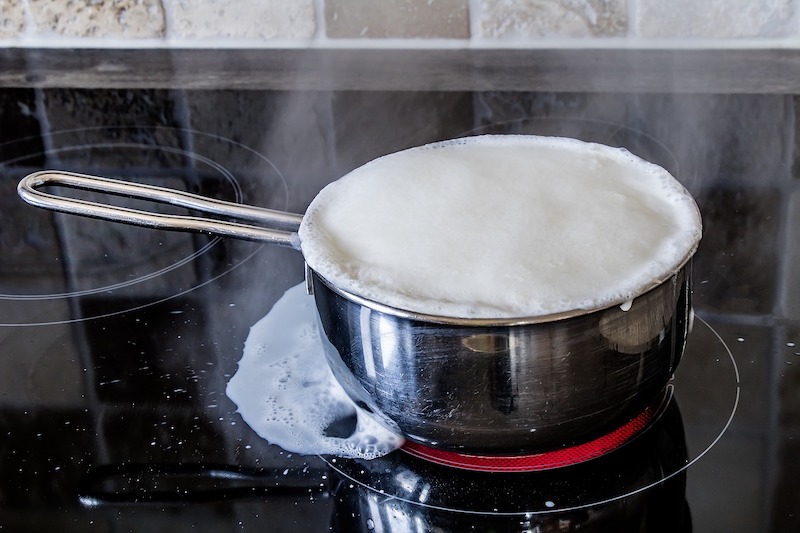Building codes should be updated to protect residents from the harmful health impacts of indoor cooking, according to a new report from the Environmental Law Institute (ELI).
Reducing Exposure to Cooking Pollutants: Policies and Practices to Improve Air Quality in Homes provides policymakers with information to help people in their communities protect themselves from being exposed to particulate matter, nitrogen dioxide, and other harmful pollutants inside their homes.
“Any type of cooking—from boiling water to frying food—will generate some amount of cooking pollution,” said ELI Staff Attorney Amy Reed, in a news release. “Fortunately, proper ventilation practices, which can remove those harmful cooking pollutants, are well established and readily available.”
Updated building codes should mandate kitchen ventilation in all new residential construction. Jurisdictions should establish minimum ventilation performance standards to ensure that exhaust systems can remove a sufficient share of the pollutants emitted during cooking immediately after they are emitted.
ELI also says policymakers should increase public awareness of both the health risks from cooking pollutants and the solutions that are available.
Related Stories
| Jul 17, 2013
EPA continues work on new federal stormwater regulations that are expected to impact development
The Environmental Protection Agency continues to develop new stormwater regulations that are expected to force project developers to write stormwater considerations into designs.
| Jul 11, 2013
DOE releases stricter energy efficiency standards for new federal buildings taking effect in 2014
The Energy Department released stricter energy efficiency standards this month for new federal buildings.
| Jul 11, 2013
Pennsylvania legislators work on bill to update demolition codes following fatal building collapse
Pennsylvania lawmakers are working on a bill to update demolition codes, in the wake of a fatal building collapse in Philadelphia in June.
| Jul 11, 2013
Lawsuit challenges modular apartment project in New York City
A plan to build pre-fab apartment buildings at Atlantic Yards in Brooklyn, N.Y., has been challenged by a lawsuit filed by the Plumbing Foundation in Manhattan Supreme Court.
| Jul 5, 2013
OSHA to launch program to protect workers from isocyanate exposure
The Occupational Safety and Health Administration (OSHA) has announced a new national emphasis program (NEP) to protect workers from serious health effects caused by occupational exposure to isocyanates.
| Jul 5, 2013
New California building code expected to boost energy demand response technology
The California master building code, set to go into effect on Jan. 1, 2014, includes a few changes that could push automated, open-standards-based demand response into the mass market.
| Jul 5, 2013
USGBC adds several new LEED pilot credits
The U.S. Green Building Council has added several new LEED pilot credits to the LEED Pilot Credit Libraryin the past few months.
| Jul 5, 2013
Spray Foam Coalition supports new professional certification program for applicators
The Spray Foam Coalition (SFC) of the American Chemistry Council announced its support of the Spray Polyurethane Foam Alliance’s (SPFA) new Professional Certification Program for spray foam applicators.
| Jul 5, 2013
Some industry insiders see design-build as easier path to LEED certification
The design-build construction delivery method may have advantages during a LEED certification process.
| Jun 27, 2013
Lease-accounting legislation could hurt construction industry
Regulatory bodies have proposed changes in how leased equipment is treated on a corporate balance sheet.
















